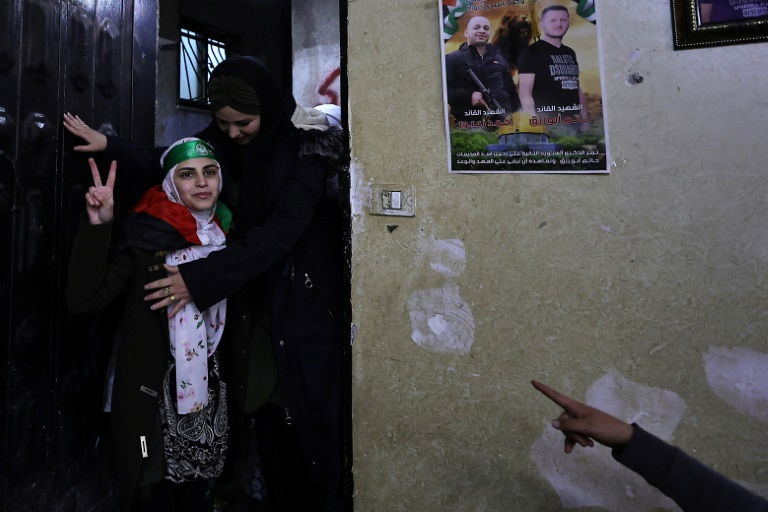Like other vaccines, BNT116 teaches the immune system to recognize a specific thing and realize that it’s bad
Article content
An mRNA vaccine, a cousin to the COVID vaccines that blunted the pandemic, has entered human trials as a treatment for lung cancer.
BNT116 is a striking example of how the conventional definition of a vaccine continues to expand. “When people hear the word vaccine, they think it means preventative, because every vaccine we’ve ever had — flu, measles, mumps, polio — those are all preventative vaccines,” said Dr. Joshua Brody, director of the Lymphoma Immunotherapy Program at the Tisch Cancer Institute at Mount Sinai Hospital in New York.
Advertisement 2
Article content
“But a vaccine just means something that teaches your immune system to recognize a specific thing and realize that it’s bad.”
Unlike traditional cancer vaccines such as the HPV vaccine, BNT116 is a therapeutic cancer vaccine designed to reduce tumour growth in patients with cancer or prevent its recurrence. Intended for use in advanced non-small cell lung cancer, BNT116 is being studied in the clinical trial to assess its safety and preliminary efficacy on a small group of patients, with a target enrollment size of 130 across seven countries.
Traditionally, cancer treatment has been comprised of three pillars: chemotherapy, radiation and surgery. In other words, poisoning, zapping and shaving off cancer cells were the only available options to eliminate tumours, often sacrificing healthy cells in the process.
Oncologists now consider immunotherapy to be a fourth pillar of cancer treatment. It not only includes cancer vaccines but represents a broader category of treatment including other tools such as immune checkpoint inhibitors, which reinvigorate immune cells to become better killers of cancer cells. The common thread among these treatments is the use of the human immune system’s remarkable ability to kill cancer cells in a more targeted way. This works because of a key vulnerability of cancer cells – they express antigens not normally seen on healthy cells, allowing them to be identified and targeted by the immune system.
Article content
Advertisement 3
Article content
It’s a return to the origins of mRNA vaccines, which were being developed for anti-cancer uses before their starring pandemic role. BNT116 contains the genetic code for six molecules frequently seen in non-small cell lung cancers, which make up 80 to 85 per cent of lung cancer diagnoses. Exposure to these six molecules primes immune cells to recognize these molecules on cancer cells and eliminate them.
BNT116 is blazing a trail in a particularly deadly form of cancer,
Dr. Stuart Edmonds, Canadian Cancer Society
Lung cancer kills 1.8 million people worldwide per year and has among the lowest survival rates in advanced stages across all cancer types. In 2024, it is estimated that 20,700 Canadians will die from lung cancer. It is also projected to be the leading cause of cancer death in both males and females, outnumbering deaths due to breast cancer in women.
Lung cancer has a high tumour mutational burden, meaning the number of mutations each cancer cell carries. With more mutations, more antigens can be recognized by the immune system, making lung cancer a good target for immunotherapies.
“BNT116 is blazing a trail in a particularly deadly form of cancer,” said Dr. Stuart Edmonds, executive vice-president, Mission, Research and Advocacy at the Canadian Cancer Society.
Advertisement 4
Article content
Beyond confirming patient safety, the Phase 1 trial is intended to determine the optimal dose of the drug before initiating larger Phase 2 and 3 trials. “You have to start somewhere, and just to get to a Phase 1 trial, many drugs fall by the wayside. And if patients respond to this, they’re actually going to benefit; it can be lifesaving, even in a Phase 1 trial,” said Edmonds.
BNT116 is also being studied in different combinations with more conventional treatments, cemiplimab and docetaxel. Cemiplimab is an immune checkpoint inhibitor, under the same umbrella of immunotherapy as cancer vaccines. Docetaxel, on the other hand, is a standard chemotherapy drug. A separate Phase 2 trial is also under way to compare how effective BNT116 is in combination with cemiplimab vs cemiplimab alone.
While immunotherapy is now considered by many oncologists to be in its golden age, the initial trials for the first immunotherapy drugs showed drastic side effects, such as damage to the liver, endocrine system and nervous system. These events can happen when the immune system is inappropriately activated at sites other than the intended target and mistakes healthy cells for cancer cells. That meant its promise was viewed skeptically by oncologists.
Advertisement 5
Article content
“One of the issues with immunotherapy in general, including [cancer] vaccines, is that for many years, there’s been a lot of hyperbole, and great things claimed for them that just have not panned out,” said Dr. David Stewart, a medical oncologist specializing in lung cancer at The Ottawa Hospital. “Until around 2014 or 2015, I used to tell residents that immunotherapy has been about to cure cancer for the past 50 years.”
Immunotherapy could be used for very small tumours, then given as a follow-up after surgery to prevent recurrence. It was only when immune checkpoint inhibitors were shown to shrink large cancers that they demonstrated true value, according to Stewart. The real measure of success will be if these vaccines work against large, established tumours.
Although immunotherapy has been refined significantly in the past decade, the risk of unwanted reactions against normal tissue exists, as with any vaccine. With immune checkpoint inhibitors, despite being among the best-tolerated treatments available, a small proportion of patients can get major toxicity involving the pancreas, brain, and other organ systems.
Advertisement 6
Article content
“My personal feeling is we have to get the initial data on people with advanced metastatic disease who do not have very good options, understand the risks, and are willing to take those risks,” said Stewart.
According to Edmonds, it’s also too early to tell how effective and safe BNT116 will be in patient populations normally excluded from clinical trials for immunotherapy, such as patients who have severely compromised immune systems.
Recommended from Editorial
Only a handful of cancer vaccines are currently FDA-approved, and their clinical use has been limited. These include Provenge for prostate cancer, BCG and Adstiladrin for bladder cancer, and Imlygic (T-VEC) for melanoma. Provenge, for example, had modest uptake due to its meager clinical benefits and high costs, and more effective drugs were being rolled out in parallel.
Many other cancer vaccines are currently in development and most, like BNT116, are intended for cancer treatment, rather than prevention.
Advertisement 7
Article content
Although BNT116 includes a fixed set of antigens, other cancer vaccines are patient-specific, informed by the personal antigenic profile of each patient. As each patient’s cancer looks unique at the molecular level, proteins on cancer cells that may be expressed differently in different patients are catalogued to create custom therapies. These personalized cancer vaccines have seen significant progress in melanoma and already have been scaled up for use in randomized trials led by Moderna.
The Phase 1 trial for BNT116 is expected to finish by November 2028. Canadian centres were not involved in the Phase I trial, but if safety and tolerability are demonstrated, Edmonds hopes that Canadians will benefit from subsequent phases.
Ironically, mRNA vaccines were originally developed for cancer before they were used for COVID-19, said Edmonds. The Canadian Cancer Society was an early investor in mRNA research, including Dr. Pieter Cullis’s pioneering work on lipid nanoparticle delivery platforms at the University of British Columbia.
“Certainly, in Canada we’re really proud to be part of this global team that’s developed mRNA vaccines, and we’re excited about what it’s going to lead to in the future.”
Jasmine Ryu Won Kang is an MD/PhD student at the Temerty Faculty of Medicine and a fellow in global journalism at the Dalla Lana School of Public Health at the University of Toronto.
Our website is the place for the latest breaking news, exclusive scoops, longreads and provocative commentary. Please bookmark nationalpost.com and sign up for our newsletters here.
Article content









